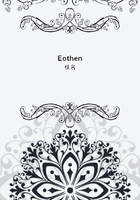
第25章
My host was in all respects a fine, generous fellow. I could not bear the idea of impoverishing him by my visit, and Iconsulted my faithful Mysseri, who not only assured me that Imight safely offer money to the vice-consul, but recommended that I should give no more to him than to "the others,"meaning any other peasant. I felt, however, that there was something about the man, besides the flag and the cap, which made me shrink from offering coin, and as I mounted my horse on departing I gave him the only thing fit for a present that I happened to have with me, a rather handsome clasp-dagger, brought from Vienna. The poor fellow was ineffably grateful, and I had some difficulty in tearing myself from out of the reach of his thanks. At last I gave him what I supposed to be the last farewell, and rode on, but I had not gained more than about a hundred yards when my host came bounding and shouting after me, with a goat's-milk cheese in his hand, which he implored me to accept. In old times the shepherd of Theocritus, or (to speak less dishonestly) the shepherd of the "Poetae Graeci," sung his best song; I in this latter age presented my best dagger, and both of us received the same rustic reward.
It had been known that I should return to Limasol, and when Iarrived there I found that a noble old Greek had been hospitably plotting to have me for his guest. I willingly accepted his offer. The day of my arrival happened to be the birthday of my host, and in consequence of this there was a constant influx of visitors, who came to offer their congratulations. A few of these were men, but most of them were young, graceful girls. Almost all of them went through the ceremony with the utmost precision and formality; each in succession spoke her blessing, in the tone of a person repeating a set formula, then deferentially accepted the invitation to sit, partook of the proffered sweetmeats and the cold, glittering water, remained for a few minutes either in silence or engaged in very thin conversation, then arose, delivered a second benediction, followed by an elaborate farewell, and departed.
The bewitching power attributed at this day to the women of Cyprus is curious in connection with the worship of the sweet goddess, who called their isle her own. The Cypriote is not, I think, nearly so beautiful in face as the Ionian queens of Izmir, but she is tall, and slightly formed; there is a high-souled meaning and expression, a seeming consciousness of gentle empire, that speaks in the wavy line of the shoulder, and winds itself like Cytherea's own cestus around the slender waist; then the richly-abounding hair (not enviously gathered together under the head-dress) descends the neck, and passes the waist in sumptuous braids. Of all other women with Grecian blood in their veins the costume is graciously beautiful, but these, the maidens of Limasol - their robes are more gently, more sweetly imagined, and fall like Julia's cashmere in soft, luxurious folds. The common voice of the Levant allows that in face the women of Cyprus are less beautiful than their brilliant sisters of Smyrna; and yet, says the Greek, he may trust himself to one and all the bright cities of the Aegean, and may yet weigh anchor with a heart entire, but that so surely as he ventures upon the enchanted isle of Cyprus, so surely will he know the rapture or the bitterness of love. The charm, they say, owes its power to that which the people call the astonishing "politics" [Greek word which cannot be reproduced] of the women, meaning, I fancy, their tact and their witching ways: the word, however, plainly fails to express one-half of that which the speakers would say. I have smiled to hear the Greek, with all his plenteousness of fancy, and all the wealth of his generous language, yet vainly struggling to describe the ineffable spell which the Parisians dispose of in their own smart way by a summary "Je ne scai quoi."I went to Larnaca, the chief city of the isle, and over the water at last to Beyrout.